Uncategorized
Is the movie ‘Nuremberg’ about the wrong Jewish psychiatrist?
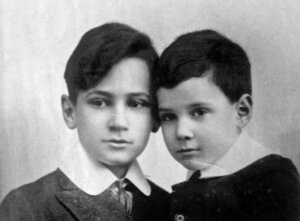
Douglas Kelley, the real-life U.S. Army psychiatrist portrayed by Rami Malek in the recently released motion picture Nuremberg, wrote a book titled 22 Cells in Nuremberg that came out in 1947, a year after he finished his five-month stint at the Nuremberg trials.
Nearly 60 years later, interviews conducted by Leon Goldensohn, a Jewish psychiatrist who replaced Kelley at the historic war crimes trials, were published in The Nuremberg Interviews: An American Psychiatrist’s Conversations with the Defendants and Witnesses. Goldensohn who spent more time with Nazi prisoners than Kelley did, and this book, translated into 16 languages, arguably sheds more light on the Third Reich criminals.
Goldensohn and Kelley were responsible for monitoring both the physical and mental health of the Nazi prisoners, and both their lives ended tragically: Goldensohn died of a heart attack in 1961, five days after his 50th birthday; Kelley died by suicide in front of his family at the age of 45.
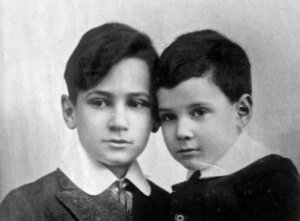
Leon Goldensohn’s son Dan, now 77, said that his father’s interactions with the prisoners were deeper than the ones Kelley had.
“There’s a couple of defendants who say in Leon’s book how much they preferred talking to him,” Dan Goldensohn told me.
One of those defendants was Hermann Goering, the commander of the Luftwaffe, the German air force, who complimented Goldensohn on his technique as a psychiatrist.
“I feel freer to talk to you than to some other psychologists,” Goering told him.
I checked in with Leon Goldensohn’s sons and daughter and their cousins when the movie Nuremberg opened and the actor portraying Douglas Kelley appeared larger than life on the silver screen. The movie was about “the wrong psychiatrist,” Dan Goldensohn told me over the phone.
“We lost our chance to have Leon’s work once again in the public eye, because of Kelley,” Dan said. “When people talk about an Army psychiatrist at Nuremberg, Kelley’s name comes up. Leon’s name hardly does. Anyway, we have our jealousies.”
A French production company did make an hour-long program based on the Goldensohn book that aired on The History Channel, but the psychiatrist’s surviving relatives said it was not well done. Dan Goldensohn said the family came close to signing a deal with an Italian company for a film or TV series based on the book.
“It suddenly collapsed as soon as they heard that this other movie was signed with real actors and a real director,” he said.
‘The best brother in the world’
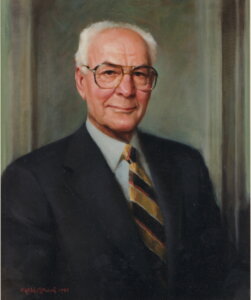
Dr. Eli Goldensohn, a world-renowned neurologist at Columbia University who died in 2013 at 98, took up the book project when he retired at the age of 83. Eli, who was four years younger than Leon, spent 10 years gathering and organizing materials, writing short summaries of all the interviews, and transcribing all those that hadn’t been transcribed. Eventually, he donated his brother’s papers to the U.S. Holocaust Memorial Museum.
When the book was published in the fall of 2004, Eli Goldensohn told me his only disappointment was that it “didn’t really describe Leon’s wonderful war record.” Leon Goldensohn had been Division Psychiatrist of the 63rd Infantry Division, which fought in France and Germany, and received several decorations for service on the front lines.
Eli remembered his older brother fondly.
“The Nazi prisoners respected Leon because he was an objective person and was fundamentally a gentleman who was able to meet them on any level,” Eli told me back in 2004. “He was the best brother in the world. I did this book to memorialize the existence of one of the finest people I ever knew.”
Anticipating Hannah Arendt
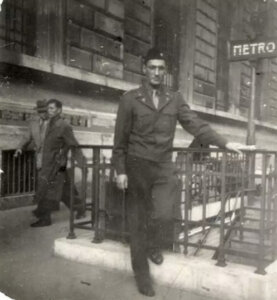
Eli Goldensohn’s son and daughter assisted him on the book. Ellen Goldensohn, who had served as editor-in-chief of Natural History magazine for many years, helped with the copyediting. Her brother Marty Goldensohn, a veteran of public radio newsrooms, introduced Eli to his friend Jim Bouton, the former Yankee pitcher and best-selling author, who convinced Eli to pursue a deal with a major commercial publisher. (Eli ended up signing with Knopf, where the interviews were turned into a book by Ashbel Green, the editor who had worked with such dissident writers as Andrei Sakharov, Jacobo Timerman and Vaclav Havel.)
Ellen Goldensohn said her uncle Leon’s work was prescient, given that it came 17 years before Hannah Arendt’s Eichmann in Jerusalem: A Report on the Banality of Evil.
“In 1946 he really knew the banality of evil and what was asked of these people who ran the Nazi regime,” she told me.
Marty Goldensohn remembers that his mother Betty, who lived to be 101, complained about her husband commandeering the extra bedroom in their assisted living apartment for the book project.
“Eli, get these file boxes out of here or I’m going over to the other side,” she joked, the other side being the Third Reich.
Marty said his father’s labor of love on the book was motivated, in part, by a sense of history, something he shared with his brother Leon.
“Leon was a Jewish doctor and he had compassion,” Marty told me. “He was in the middle of something that the historian Tony Judt once described as ‘a seam of evil.’ He was at the seam and how could he resist asking the key questions that had to do with the horror that had been perpetrated?”
The ‘Good’ German

Of the 476 pages in The Nuremberg Interviews, 33 are devoted to Goering, who told Goldensohn he was nauseated by Picasso, referred to the virulently antisemitic newspaper Der Sturmer as “that stupid journal” and claimed that of all the accusations leveled against him, the charge of looting art treasures caused him the most anguish.
In conversations with Goldensohn, Goering insisted that he was never antisemitic, that Adolph Hitler was a great leader who was betrayed by some of his subordinates and that he, Goering, would go down in history as a man who did much for the German people.
When Leon Goldensohn pressed Goering on his culpability in the genocide of European Jewry, the prisoner gave a classic “Good German” defense: “Certainly, as second man in the state under Hitler, I heard rumors about mass killings of Jews, but I could do nothing about it and I knew that it was useless to investigate these rumors and to find out about them accurately, which would not have been too hard, but I was busy with other things,” he said. “And if I had found out what was going on regarding the mass murders, it would simply have made me feel bad and I could do very little to prevent it anyway.”
The post Is the movie ‘Nuremberg’ about the wrong Jewish psychiatrist? appeared first on The Forward.
Uncategorized
US Appeals Court Says Decision to Free Mahmoud Khalil Lacked Jurisdiction, Opens Door to Rearrest

Anti-Israel activist and former Columbia University student Mahmoud Khalil marching with followers in New York City on June 22, 2025. Photo: Reuters Connect
A US federal appeals court ruled on Thursday that a lower court judge lacked the authority to order the release of a prominent anti-Israel activist who helped stage riotous demonstrations on New York City college campuses.
Mahmoud Khalil, an Algerian citizen born in a Palestinian refugee camp in Syria, was detained by the Trump administration in March after federal agents arrested him at his Manhattan apartment for what the Department of Homeland Security described as “activities aligned to Hamas, a designated terrorist organization.” The State Department also alleged that Khalil was supporting Hamas and argued his residing in the US posed “serious adverse foreign policy consequences.”
Immigration officials moved Khalil to New Jersey, leading his case to be transferred there to US District Judge Michael Farbiarz.
Khalil was held without charge for more than 100 days at a facility in Louisiana administered by US Immigration and Customs Enforcement, until Farbiarz ordered his release in June, ruling that the government failed to prove he posed a threat and suggesting the detention may have violated his First Amendment rights.
On Thursday, however, a three-judge panel of the Philadelphia-based 3rd US Circuit Court of Appeals ruled 2-1 that the lower court lacked “subject-matter jurisdiction” under federal immigration law to halt the Trump administration’s effort to deport Khalil.
According to the appeals court, the district court that considered his lawsuit was not the proper forum to address Khalil’s claims, which should have been heard through an appeal of a removal order from an immigration judge in accordance with the Immigration and Nationality Act (INA).
The ruling stressed that Khalil lacks legal standing to challenge the government’s decision to deport him before his case has been adjudicated in immigration court, adding that the INA does not allow for a petition to review (PFR) the case at the federal level at this time.
“The scheme Congress enacted governing immigration proceedings provides Khalil a meaningful forum in which to raise his claims later on — in a petition for review of a final order of removal,” an opinion issued by the majority says. “That scheme ensures that petitioners get just one bite at the apple — not zero, or two. But it also means that some petitioners, like Khalil, will have to wait to seek relief for allegedly unlawful government or conduct.”
It added, “Because Khalil raises legal questions that a PFR court can meaningfully review later on, the INA bars him from attacking his detention and removal in a habeas petition.”
In a statement, Khalil was defiant even as he faces the possibility of being again detained.
“The door may have been opened for potential re-detainment down the line, but it has not closed our commitment to Palestine and to justice and accountability,” he said. “I will continue to fight, through every legal avenue and with every ounce of determination, until my rights, and the rights of others like me, are fully protected.”
Additionally, his lawyers, provided by the American Civil Liberties Union (ACLU), vowed to exhaust “every available avenue,” which may include a petition for his case to be decided by the US Supreme Court.
Speaking to Fox News, the Trump administration commended the decision, saying, “Mahmoud Khalil was given the privilege of coming to America to study on a student visa he obtained by fraud and misrepresentation. As we have always maintained, the executive branch has the lawful authority to take actions that will protect the public and to ensure the integrity of our immigration system.”
Beyond Khalil’s alleged pro-Hamas activities, the US government has maintained that its action was warranted by his lying to obtain a green card. In court documents it charged that Khalil did not disclose that he had interned for the United Nations Relief and Works Agency (UNRWA), a group that was found multiple times to have been breached by Hamas members, and also concealed key details about another position he held at the British embassy in Beirut, Lebanon. Khalil, the government added, also did not inform immigration officials about his leadership role in the notorious “Columbia University Apartheid Divest” (CUAD) group.
As previously reported by The Algemeiner, CUAD perpetrated illegal building occupations and severe infrastructure sabotage while Khalil participated in a graduate program at Columbia University in the months after the Hamas-led Oct. 7, 2023, massacre across southern Israel. The acts stunned Columbia’s campus, prompting fears of imminent revolutionary-style violence on campus even as Jewish students and faculty received antisemitic hate mail and death threats.
The Department of Homeland Security initially arrested Khalil while acting on an executive order issued by President Donald Trump which called for the deportation of foreign nationals who cause antisemitic hate incidents. A major provision of the order calls for the deportation of extremist “alien” student activists, whose alleged support for terrorist organizations, intellectual and material, such as Hamas supposedly contributed to fostering antisemitism, violence, and property destruction on college campuses.
Khalil has refused to condemn Hamas and even once denied that antisemitism at Columbia University required a policy response from school officials.
“I would say there is manufactured hysteria about antisemitism at Columbia because of the protests,” Khalil told Ezra Klein in an interview with The New York Times last year. “There are incidents here and there. But it’s not like antisemitism is happening at Columbia because of the Palestine movement … This is why I always push back. I have a strong belief that antisemitism and anti-Palestinian racism rise together because the same groups are perpetrating that in different ways.”
Khalil then went on to assert some of the very claims prompting accusations of antisemitism in the anti-Israel movement, accusing the Jewish state of “genocide” while arguing that the accusation is aimed at making pro-Israel supporters “uncomfortable” and defending the terrorist-led Palestinian intifadas.
“I don’t want to sanitize history,” Khalil continued. “Like I told you, the second intifada involved violent acts, but overwhelmingly, they were peaceful.”
Over 1,000 Israelis were killed in the early 2000s during the second intifada, when Palestinian terrorists ramped up violence targeting Israelis that included suicide bombings, shootings, and stabbings.
As previously reported by The Algemeiner, pro-Hamas activists at Columbia produced several indelible examples of campus antisemitism, including a student who proclaimed that Zionist Jews deserve to be murdered and are lucky he is not doing so himself, brutal gang-assaults on Jewish students, and administrative officials who, outraged at the notion that Jews organized to resist anti-Zionism, participated in a group chat in which each member took turns sharing antisemitic tropes that described Jews as privileged and grafting.
CUAD was among the most strident pro-Hamas organizations on campus and once promoted itself by distributing literature which called on students to join Hamas’s movement to destroy Israel and America.
“This booklet is part of a coordinated and intentional effort to uphold the principles of the thawabit and the Palestinian resistance movement overall by transmitting the words of the resistance directly,” said a pamphlet distributed by CUAD, a Students for Justice in Palestine (SJP) spinoff, to incoming freshmen. “This material aims to build popular support for the Palestinian war of national liberation, a war which is waged through armed struggle.”
Other sections of the pamphlet were explicitly Islamist, invoking the name of “Allah, the most gracious” and referring to Hamas as the “Islamic Resistance Movement.” Proclaiming, “Glory to Gaza that gave hope to the oppressed, that humiliated the ‘invincible’ Zionist army,” it said its purpose is to build an army of Muslims worldwide.
“We call upon the masses of our Arab and Islamic nations, its scholars, men, institutions, and active forces to come out in roaring crowds tomorrow,” it added, referring to a then-upcoming event. “We also renew our invitation to the free people and those with living consciences around the world to continue and escalate their global public movement, rejecting the occupation’s crimes, in solidarity with our people and their just cause and legitimate struggle.”
Columbia University denounced the group in 2025 as a part of a rollout of policies to combat antisemitism and unauthorized demonstrations which disrupted academic life.
In a statement issued in July, university president Claire Shipman said the institution will hire new coordinators to oversee complaints alleging civil rights violations; facilitate “deeper education on antisemitism” by creating new training programs for students, faculty, and staff; and adopt the International Holocaust Remembrance Alliance (IHRA) definition of antisemitism — a tool that advocates say is necessary for identifying what constitutes antisemitic conduct and speech.
Follow Dion J. Pierre @DionJPierre.
Uncategorized
French Publisher Recalls School Textbooks That Describe Oct. 7 Victims as ‘Jewish Settlers’

An aerial view shows the bodies of victims of an attack following a mass infiltration by Hamas gunmen from the Gaza Strip lying on the ground in Kibbutz Kfar Aza, in southern Israel, Oct. 10, 2023. Photo: REUTERS/Ilan Rosenberg
The largest publishing company in France announced on Wednesday its decision to immediately recall three high school textbooks that describe the victims of the Palestinian terrorist group Hamas’s Oct. 7, 2023, invasion of and massacre across southern Israel as “Jewish settlers” following outrage in the country.
Hachette Livre said it recalled copies of the textbooks that feature the “erroneous content” from booksellers and its other partners. The company also launched an internal investigation to determine how the error could have occurred.
The publisher apologized and said the books will only be sold again once they are corrected, while unsold books will be destroyed. An estimated 2,000 copies were reportedly recalled.
The textbooks read, “In October 2023, following the death of more than 1,200 Jewish settlers in a series of Hamas attacks, Israel decided to tighten its economic blockade and invade a large part of the Gaza Strip, triggering a large-scale humanitarian crisis in the region.”
The text appears in books for final year students preparing for the baccalaureate exam.
Hachette Livre’s chairman, Arnaud Lagardere, apologized “to all those who may rightly have felt hurt, to the teaching staff, to the parents of students, and to the students themselves.” He added that the publisher will “put in place the necessary procedures to ensure that this does not happen again.”
In a post on X, French President Emmanuel Macron said historical revisionism and school textbooks that “falsify the facts” are “intolerable,” especially regarding the “terrorist and antisemitic” massacre on Oct. 7, 2023. “Revisionism has no place in the Republic. I have asked the government to take measures,” he added.
The French Embassy in Israel said it was “deeply outraged” by Hachette’s distortion of facts.
“Any biased presentation of the terrorist and antisemitic attacks carried out by Hamas on Oct. 7 is unacceptable,” it wrote in a post on X. “France is committed to the truth of the facts, to historical rigor, and to the fight against terrorism and antisemitism. The French government has been informed, and immediate measures have been taken to ensure that these shortcomings are corrected without delay.”
Yonathan Arfi, head of the French Jewish group Crif, said the false narrative promoted in the textbooks “constitutes a falsification of history and an unacceptable form of legitimization of Hamas terrorism, which this book fails to explicitly label as a terrorist organization.”
“The justification of the Oct. 7 terrorism has no place in school textbooks,” he wrote on X. “It is not acceptable for this text to continue serving as an educational resource in the schooling of young French people. Hate has no place in school textbooks.”
Uncategorized
The ADL’s turn away from civil rights was years in the making — Oct. 7 accelerated it
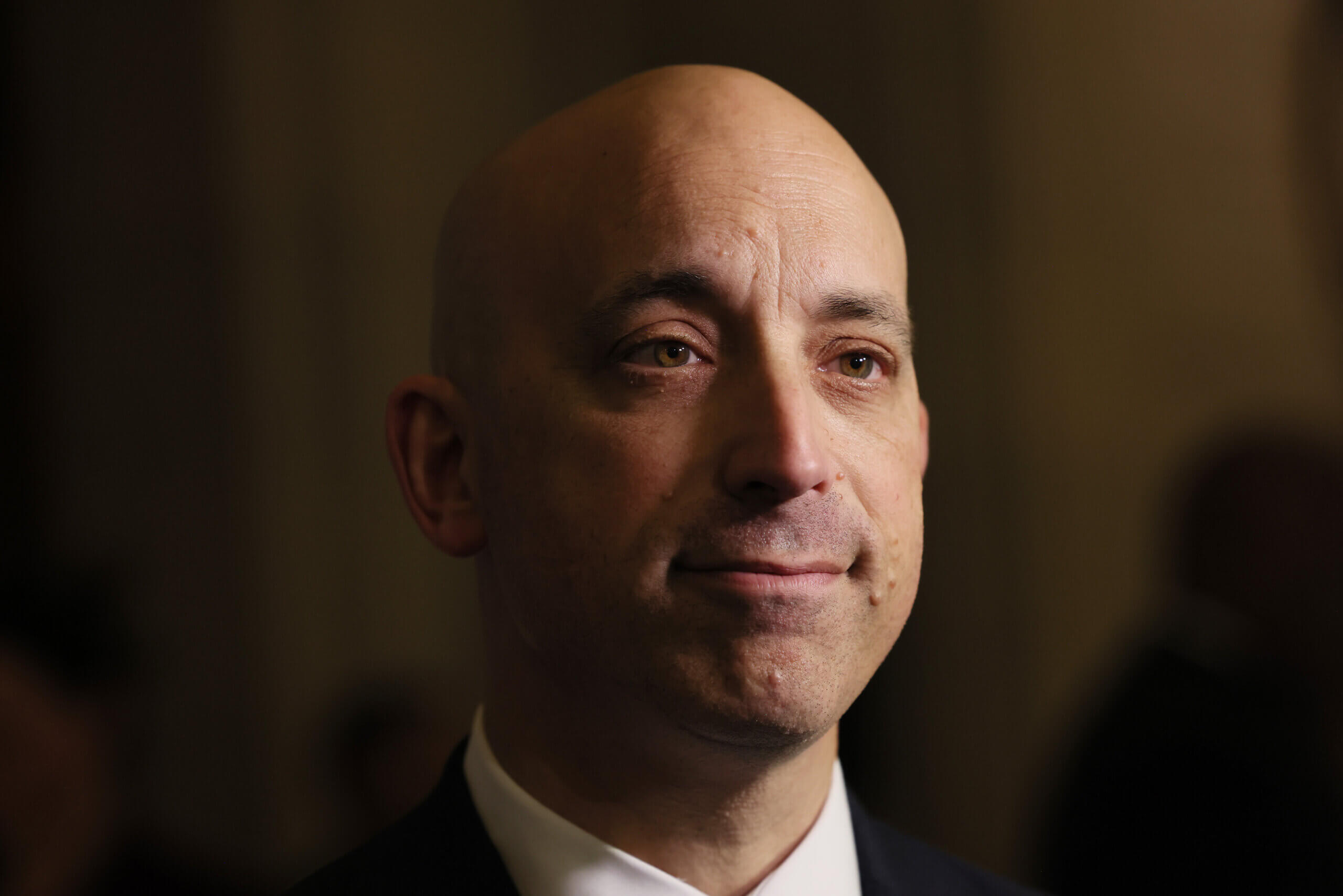
The Anti-Defamation League’s broad coalition that helped pass a hate crime law in Georgia at the height of the Black Lives Matter movement six years ago was a classic campaign for the organization, drawing together an alliance of civil rights groups with civic and business leaders to pass a landmark piece of liberal-minded legislation.
After helping the ADL shepherd the bill through Georgia’s legislature, Robert Sills, a young Atlanta-based attorney, decided to apply for a job with the organization. “I thought, ‘I know these people and really like them,’” Sills recalled in an interview.
He was hired in August 2023 to manage state and local policy and set to work on a toolkit to help city governments stop hate groups. “When I joined, the perception was still very much that it was white supremacists and neo-Nazis that we were focused on,” Sills said.
Three years later, much has changed at the nation’s largest Jewish advocacy organization. Sills is gone, and the ADL has shut down its teams focused on democracy and civil rights. Much of the information about #HateFreeGA has been archived and is no longer available on the ADL’s website, nor are hundreds of other pages related to civil rights and extremism, as the organization narrows its focus to antisemitism.
“Core civil rights work is going away,” said Sills, who resigned about a year after he started.
The ADL has tried to walk a fine line between acknowledging a shift away from civil rights while insisting that it remains committed to its historic mission of helping both Jews and non-Jews. The organization said, for example, that removing “protect civil rights” from a prominent section of its website was a technical update; it still notes a commitment to “safeguarding civil rights” in its work countering extremism.
At the same time, Jonathan Greenblatt, the organization’s CEO, has said that the surge of antisemitism following the Oct. 7 Hamas terrorist attack in Israel has been forcing a retreat from the ADL’s historic commitment to such work.
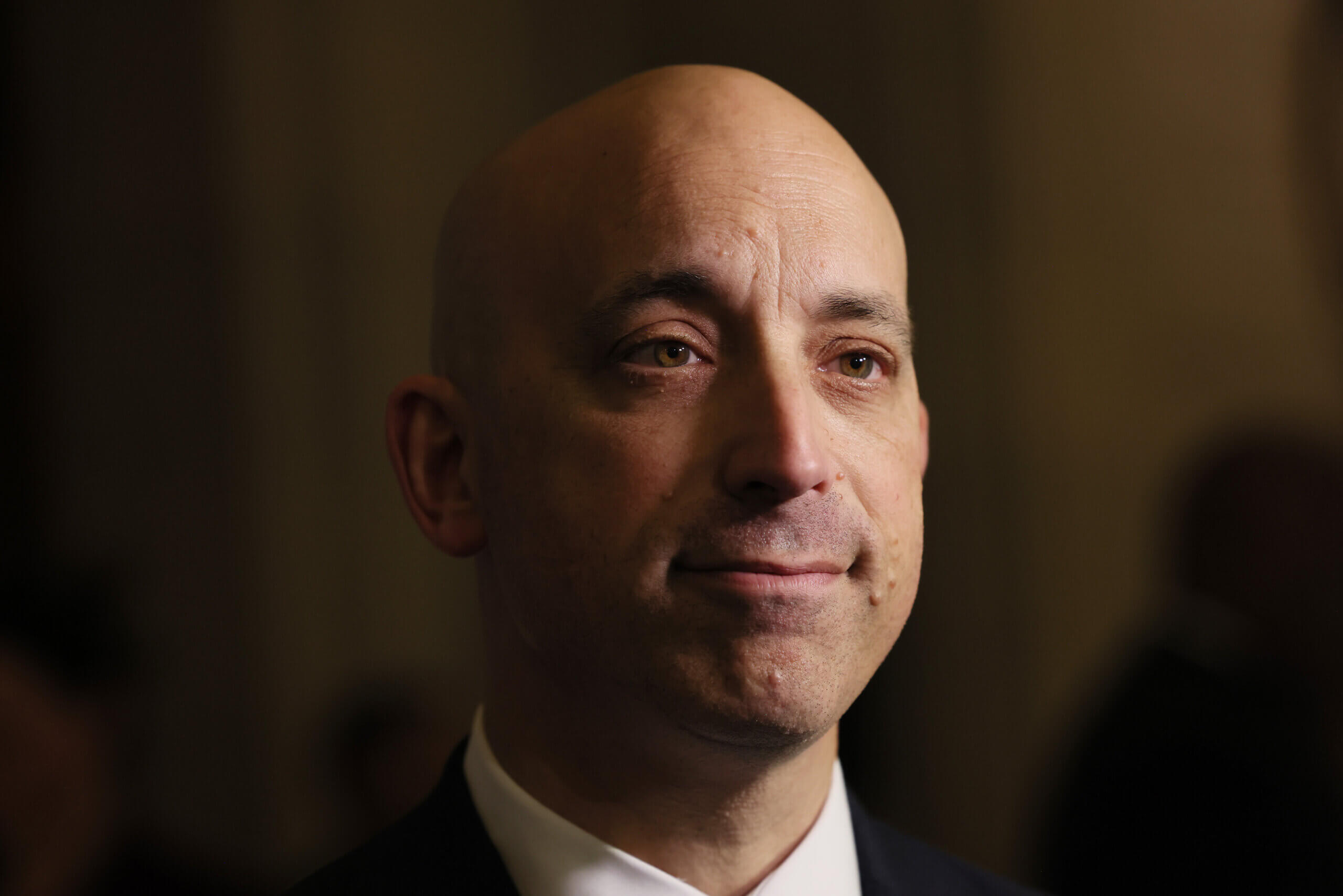
“This moment has required us to be more and more focused on fighting the rise of antisemitism,” Greenblatt said in an interview. “And I hope when this situation abates — when there’s a cessation of hate, when the numbers start to come down — that we’ll be able to make different decisions about how we allocate our resources.”
But many close observers say Greenblatt began shifting the organization away from work on voting rights, abortion, and LGBTQ+ issues, among others, well before Oct. 7 and that the ADL is unlikely to return to those issues under his leadership — a shift that could have major implications for American Jews given the ADL’s outsize influence in shaping the way Americans understand antisemitism.
“Groups that should be natural allies of a group like the ADL aren’t going to trust anything it says.”
Rabbi Jill JacobsDirector of T’ruah
This article is based on interviews with 14 current and former ADL employees, board members and major donors, along with other Jewish leaders who have worked closely with the organization, most of whom spoke on the condition of anonymity because they had signed non-disclosure agreements or because being named would jeopardize their current employment or their working relationship with the ADL.
Jill Jacobs, the director of T’ruah, a liberal rabbis and cantors group, said the ADL’s decision to stop working on behalf of other vulnerable groups, and increasing willingness to antagonize former allies on the left, has been making it hard for every Jewish organization trying to convince partners to take antisemitism seriously.
“Groups that should be natural allies of a group like the ADL aren’t going to trust anything it says — and aren’t going to trust much of what’s said publicly about antisemitism by anyone,” she said.
Sherman Fabes, a spokesperson for the ADL, defended the organization’s track record and said that even as it focuses more narrowly on antisemitism it recognizes that “we can’t do it alone.” Fabes pointed to Greenblatt’s decision to sponsor the 60th anniversary of the March on Washington shortly before Oct. 7, ongoing partnerships with the National Urban League and the League of United Latin American Citizens, and lawsuits defending a church targeted by white supremacists over its support of LGBTQ+ rights and an Ohio city suing a neo-Nazi group.
But Greenblatt has also spoken publicly since Oct. 7 about his frustration with the civil rights organizations that he believes failed to show up for Jews as antisemitism spiked. And the ADL’s move away from civil rights work in the two years since has alienated several mainstream organizations.
Both GLAAD, an LGBTQ+ advocacy group and longtime partner of the ADL, and the Asian American Foundation, which was created with support from the ADL, have pulled back from work with the ADL’s Center on Extremism since Oct. 7 as the organization began almost exclusively monitoring antisemitism, according to a former employee. Meanwhile, a global LGBTQ+ rights coalition and the ADL parted ways as well.
The NAACP once partnered closely with the ADL, including on a campaign targeting social media companies, but the organizations have drifted apart more recently and CEO Derrick Johnson has been absent from recent ADL conferences, though Fabes said he remains affiliated with the organization. And several people close to Maya Wiley, who runs the Leadership Conference on Civil Rights, said she and Greenblatt have repeatedly clashed.
Abe Foxman, the ADL’s former longtime director, cautioned against Jews abandoning civil rights work during a podcast last spring. “We can’t throw it away because at the end of the day we’ll be alone,” he said. “And we can’t survive alone.”
An early retreat from civil rights
Greenblatt had been CEO of the ADL for just over a year when Donald Trump was first elected in 2016, and quickly positioned himself as a bulwark against what many feared would be an erosion of civil liberties under the president. “If one day Muslim Americans will be forced to register their identities, then that is the day that this proud Jew will register as Muslim,” Greenblatt declared shortly after the election.
And when Trump nominated Brett Kavanaugh to the Supreme Court in 2018, Greenblatt issued a statement warning about the risk to “the future of civil rights, civil liberties, and our democracy” and referenced “LGBT rights, voting rights, and women’s rights” before raising an alarm about Kavanaugh’s “demonstrated hostility to reproductive freedom.”
The expression of concern was standard fare for the organization, which was founded in 1913 with a mission “to stop the defamation of the Jewish people and to secure justice and fair treatment to all” and had been reliably liberal on domestic political issues, including abortion.
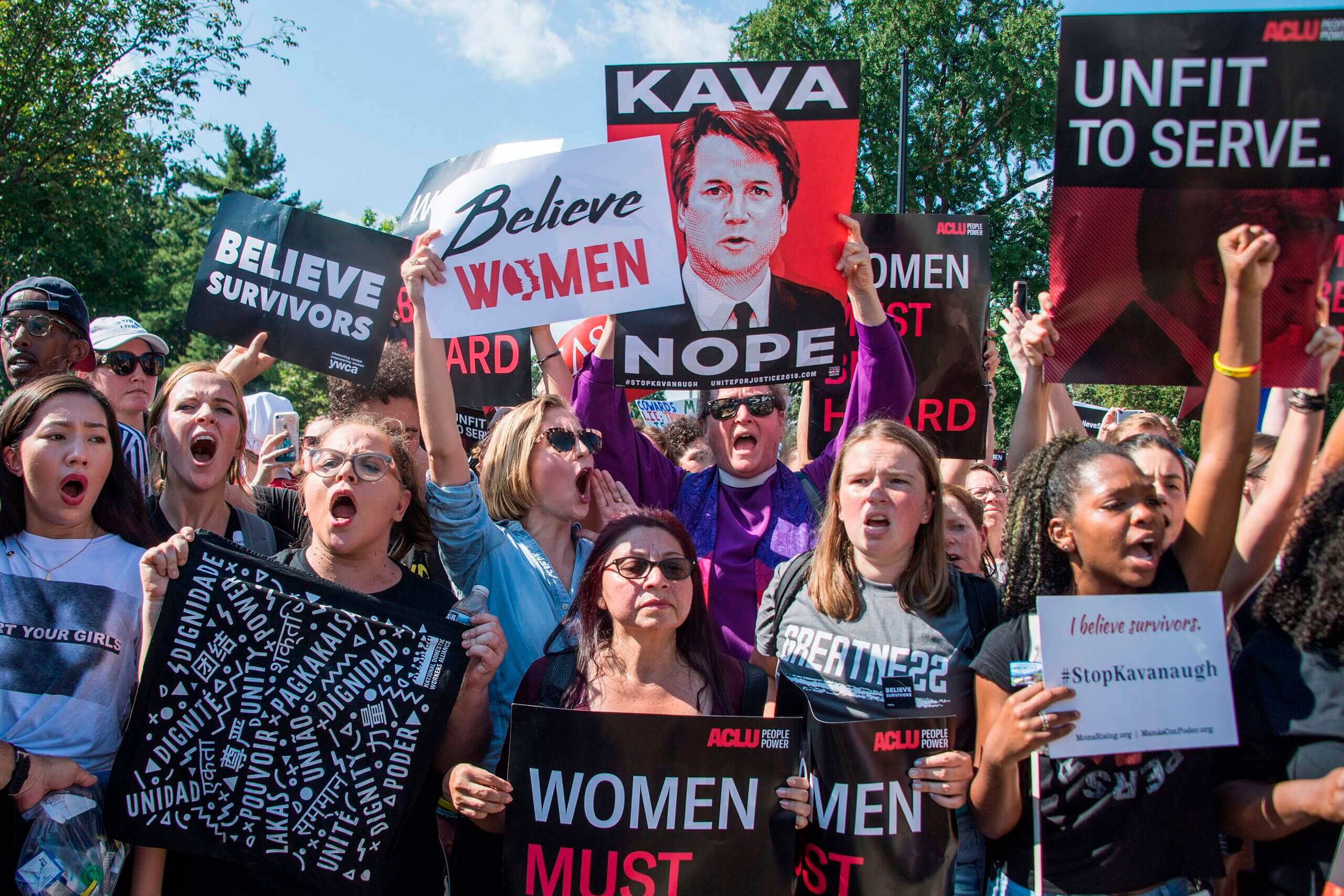
But the Kavanaugh statement frustrated conservative Jews already wary of Greenblatt’s background working as a special assistant to President Barack Obama. Liel Leibovitz wrote an op-ed for The Wall Street Journal claiming that “Greenblatt has frequently steered the ADL into the murky waters of party politics” and was “leaving American Jews behind.”
The column was part of a flurry of attacks across right-wing media that seemed to hit a nerve.
“Jonathan utterly freaked out,” said a former senior ADL leader familiar with the incident. He announced that the organization would not change its official position on abortion “but we’re kind of going to bury and downplay it,” the source recounted.
Melanie Robbins, the former deputy director of the organization’s New York and New Jersey regional offices, told JTA in December that Greenblatt yelled during a meeting following the Kavanaugh hearings that women’s issues were not core issues for the ADL.
Nancy Kaufman, who was CEO of the National Council on Jewish Women at the time, said she also recalled Greenblatt’s decision to stop working on abortion rights following Kavanaugh’s nomination.
“It was the beginning of the retreat by ADL of dealing with the kind of human rights issues that we had come to believe they were supporting,” Kaufman said in an interview. “I was concerned then; I’m concerned now.”
Fabes, the ADL spokesperson, said that the organization had never been an abortion rights organization and that “the confirmation hearings, nor any response, had no impact on the direction of ADL’s work in any area.”
He denied that Greenblatt had been alarmed by right-wing attacks, and said that he “did not yell at anyone.”
Early in his tenure, Greenblatt also diminished the role of the organization’s national commission, a group of several hundred lay leaders that served as its governing board — who were overwhelmingly liberal, committed to broad civil rights work and had long helped set the organization’s policy agenda.
Joe Berman, a Boston attorney who served on the national commission for 15 years, acknowledged that the 350-member body could be unwieldy and said Greenblatt persuaded them to turn power over to a more traditional 20-person board. But Berman said that however practical it may have been, the move “kneecapped” the influence of volunteer leaders and allowed Greenblatt to shift the organization away from a focus on civil rights.
“Let’s be honest, it’s always been a more progressive, left-leaning organization,” Berman said. “Jonathan is paddling upstream against that.”
Fabes said the ADL has always been “strictly nonpartisan and nonpolitical” and that the transition to a more traditional board reflected best practices for nonprofit governance and was made with broad support.
Greenblatt also oversaw the 2017 departure of Deborah Lauter, who had served as national civil rights director at the ADL for nearly a decade when Greenblatt was hired, and shortly thereafter several of the organization’s most senior civil rights staff — including Michael Lieberman, Erika Moritsugu and Moran Benai — departed within a few months of one another, taking with them years of specialized experience.
“It’s always been a more progressive, left-leaning organization. Jonathan is paddling upstream against that.”
Joe BermanFormer member of the ADL’s national commission
Lieberman had served as Washington counsel for the organization since 1989 and led a portfolio focused on hate crime prevention, religious freedom, and LGBTQ+ equality and voting rights, a role that has not been filled. He also managed the ADL’s relationship with many non-Jewish civil rights groups, which gave him credibility to speak with those groups about antisemitism and Israel.
“We need to stand with others if we think that we want them — expect them — to stand with us,” Lieberman said during a speech shortly before he resigned. “If you want a friend, you have to be a friend.”
Eileen Hershenov’s departure without replacement as senior vice president for democracy initiatives in August 2023 marked the end of an executive-level position focused on civil liberties.
When Greenblatt took over in 2015, the ADL had around 10 full-time employees coordinating the organization’s work on its civil rights portfolio. But despite hiring 200 new staff members over the past decade — and nearly tripling the ADL’s budget from $57 million to $163 million — a combination of attrition and the reassignment of regional civil rights counsels to new roles has led to the elimination of any dedicated teams working on civil rights or democracy.
Fabes said Hershenov’s portfolio and the former civil rights counsels were converted to “policy counsels” and folded into a new 29-person “national affairs” team, “the majority of whom do civil rights work.” But he downplayed the significance of these structural changes over the past decade. “All of our work relates to antisemitism,” Fabes wrote in an email. “That’s true now as it was true then.”
In response to a question about how Greenblatt viewed the departures of Lieberman and other senior civil rights staff, Fabes said that the ADL did not comment on personnel matters. But in a recent op-ed Greenblatt lamented that in working on “the broader landscape of social issues” the organization had sometimes “ranged far from our core purpose.”
Oct. 7 and the ‘bolt of lightning’
Greenblatt’s explanation for how the ADL came to eschew a broader advocacy portfolio in favor of a “laser” focus on antisemitism centers on Oct. 7, 2023, and its aftermath. “It was like a bolt of lightning,” Greenblatt told the Forward in an oral history of the day. “I’ve had tough days, but Oct. 7 was the toughest.”
It wasn’t just the carnage in Israel but a sense of betrayal that struck Greenblatt.
“Jews around the world and here in America mourned,” Greenblatt recalled in a speech this past November. “Yet, to our dismay, many of our so-called allies were nowhere to be found.”
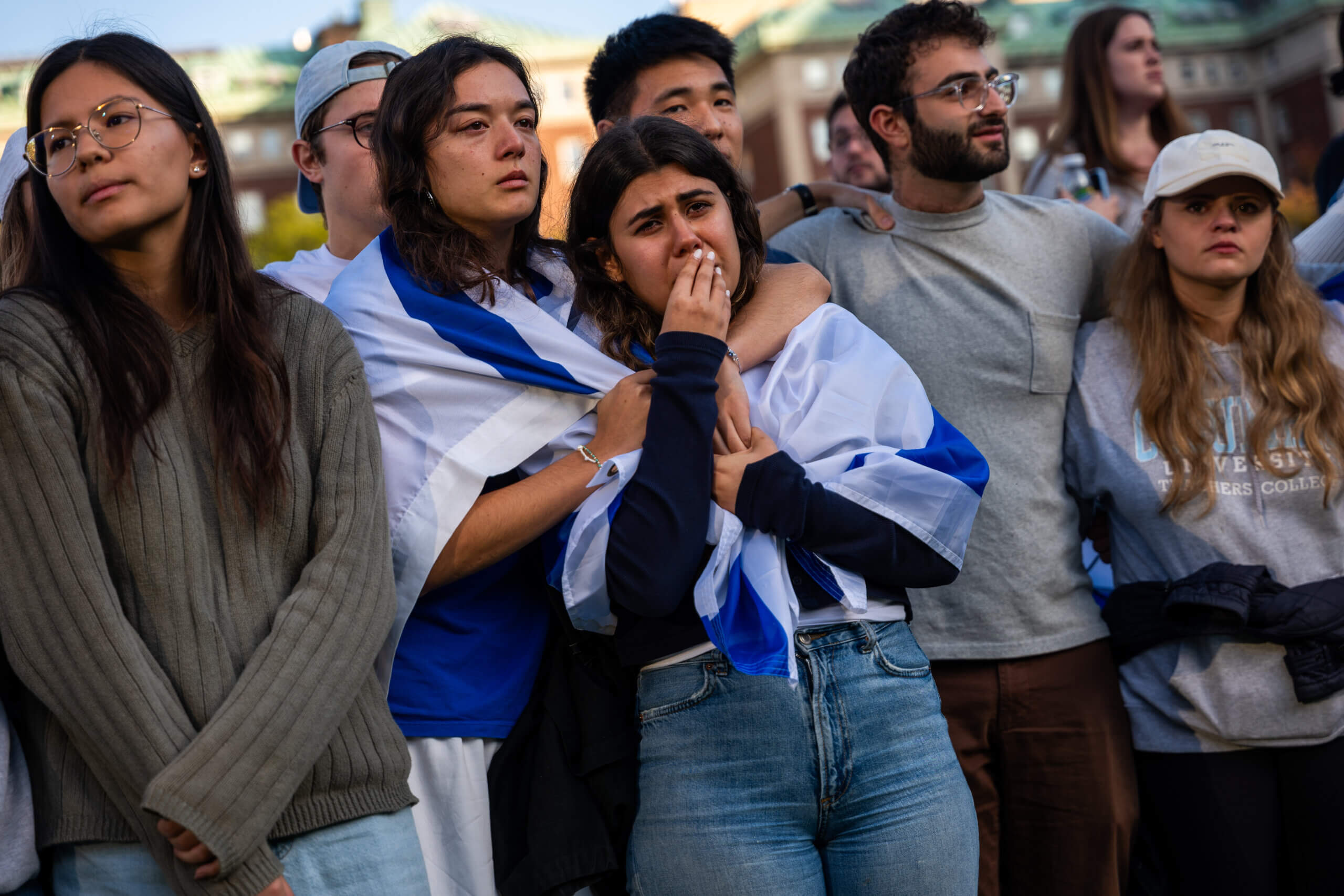
One of those so-called allies was the Council for Global Equality, a coalition promoting LGBTQ+ rights overseas that the ADL had helped create in 2008 and that Julie Dorf, the council’s co-chair, said had regularly partnered with the ADL on policy campaigns during the Obama administration.
But as the ADL began working less on civil rights issues, they faded into the background of her coalition, Dorf said.
Still, the ADL believed that the council’s statement about the Israel-Hamas war, which condemned “all attacks on civilian populations” and called for a ceasefire, was a departure from the organization’s mission and “harmful to our ADL community,” according to Fabes.
“CGE was unwilling to acknowledge the harm the statement had caused,” Fabes added. “ADL, therefore, made the values-based decision to end our membership in the coalition.”
Dorf said she wasn’t sure what the ADL’s specific objection was even after meeting with them at the time.
“It was clear they didn’t even read it carefully because they accused us of all kinds of things that weren’t true — I said, ‘Pull it up, do you see these sentences?’” recalled Dorf, who is Jewish. “They were just grasping for something that would make it an antisemitic statement.”
“There was a time before Oct. 7 and there’s a time after.”
Jonathan GreenblattCEO of the ADL
Dorf said she didn’t hear anything from the ADL following the meeting and removed the organization from the coalition herself. The council continues to represent some of the largest LGBTQ+ groups in the country, including GLAAD, the Human Rights Campaign and the Trevor Project. Following the ADL’s departure, its only Jewish member is American Jewish World Service.
Fabes said the ADL continues to support LGBTQ+ rights and pointed to recent partnerships with Equality Illinois on a hate crimes training law for police in the state and with Free State Justice on an anti-masking law in Maryland.
Inside the ADL, Sills, who previously worked for Amazon, said Greenblatt began adopting the kind of corporate mantras favored by Jeff Bezos. Instead of “every day is day one,” Greenblatt began telling staff that every day was Oct. 8. “It seemed to communicate the expectation that ADL exists in this trauma response state indefinitely,” Sills said.
Greenblatt has maintained this perspective. “When I say we’re still in an Oct. 8 world, we are — and that doesn’t mean that we don’t adapt and evolve, but there was a time before Oct. 7 and there’s a time after,” he said in an interview.
After Oct. 7, what had been a gradual shift away from working on issues other than antisemitism expanded into what some staff saw as a disregard for safeguarding civil liberties when it came to antisemitism work.
A few weeks after Oct. 7, Greenblatt called on nearly 200 college and university presidents to investigate pro-Palestinian student clubs for “materially supporting” Hamas, and months later the organization endorsed mask bans at political demonstrations.
Sills, the head of local policy at the time, said the anti-masking campaign drove his resignation.
“I laid out the legal argument, commented on the fact that employees at ADL with significant expertise were not being listened to, and said, ‘You’ve got to find somebody else to do this — it’s not going to be me,’” Sills recalled. “It’s unconstitutional.”
Fabes said Sills was not privy to high-level decision making at the ADL and that many experts supported the push for anti-masking laws.
“Ultimately, the proposed anti-masking legislation gained full support from Black and LGBTQ groups because ADL’s approach was responsible and legal, harkening back to the anti-masking laws that were first passed to combat the Ku Klux Klan,” Fabes said. He noted that the NAACP’s local chapter in New York backed a law in the state.
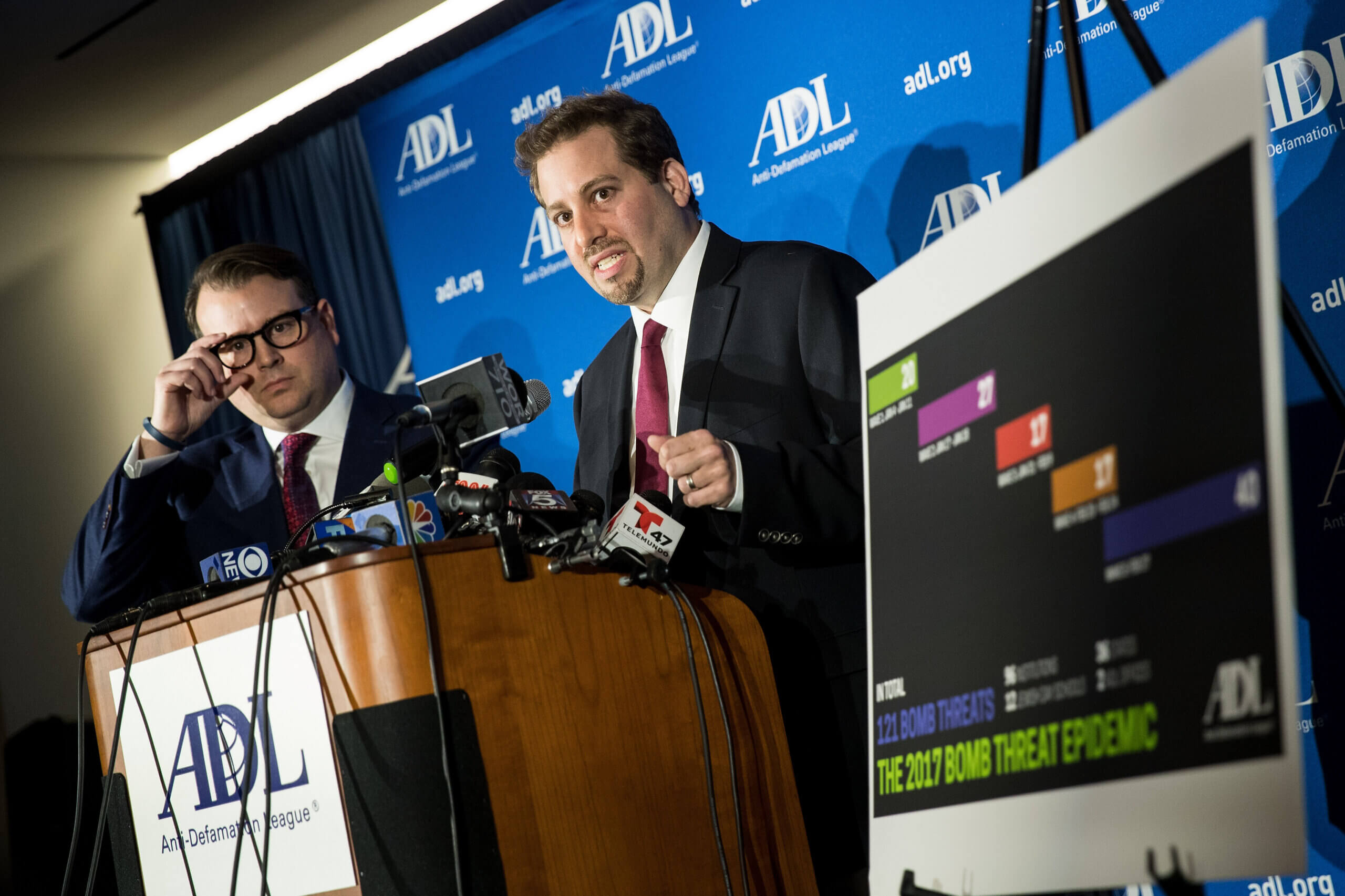
There was also a push within the organization to categorize a wider range of speech as antisemitism, specifically speech targeting Israel. One former employee, who helped the Center on Extremism track antisemitic incidents, said staff initially responded to Greenblatt’s 2022 speech — in which he more forcefully articulated his existing view that anti-Zionism was a form of antisemitism — by defining the concept extremely narrowly.
“The team cared a lot about the data and said, ‘Well, Jonathan has defined anti-Zionism as specifically not supporting a Jewish right to self-determination in Israel, so just saying ‘Israel is a racist state’ isn’t saying Jews have no right to self-determination,’” the employee recalled.
But after Oct. 7, the person said, ADL executives began insisting that the center’s staff classify many pro-Palestinian demonstrations as antisemitic based on the use of anti-Zionist slogans and signs.
The ADL said in a statement to the Forward in January 2024, following the release of its first annual tally of antisemitic incidents following Oct. 7, that it had significantly broadened its definition of antisemitic incidents to include rallies that feature “anti-Zionist chants and slogans.”
“While our methodology may change slightly from time to time, there was no mandate from senior leadership to make changes after Oct. 7,” Fabes said. He added that the ADL only counted 2,596 out of more than 5,000 protests against Israel in 2024 as antisemitic.
The Asian American Foundation, a civil rights organization modeled after the ADL and created with significant support from Greenblatt, has come under pressure to cut ties with the group from 70 Asian American groups and allies frustrated with Greenblatt’s criticism of pro-Palestinian activists. The foundation has maintained its relationship with the ADL, including sharing a board member with the organization, though The New Yorker reported that it ended its partnership with the Center on Extremism in the spring of 2024.
Around the same time, Sarah Moore, who had been monitoring anti-LGBTQ+ extremism in a dual role for both the ADL and GLAAD, started a new role working exclusively for GLAAD. GLAAD did not respond to multiple questions about its current relationship with the ADL, but three former employees said the organization had made an intentional decision to cut ties.
Fabes said the ADL was “proud of the work our teams accomplished together” and “proud that this effort enabled GLAAD to fully fund and house this position within its own team.”
ADL staff in the Center on Extremism wrote a letter to their boss, quoted by The New Yorker, warning that the organization was losing trust with “other extremism researchers, media outlets, anti-hate organizations, civil rights groups and — perhaps most concerningly — large swaths of the Jewish community that we are committed to serving.”
The letter came from “a few people” and “did not represent the views of all staff,” according to Fabes, but he said that Greenblatt met with the team to discuss the issues raised.
The ADL also said that it was in the process of adding a new researcher to the Center on Extremism funded by the League of United Latin American Citizens to monitor threats to the Hispanic community.
Greenblatt made waves early in the second Trump administration for initially defending Elon Musk’s controversial gesture at an inaugural rally as an “awkward gesture,” and then supporting the White House’s “bold” attempt to revoke the permanent residency of Mahmoud Khalil, a leader of the pro-Palestinian demonstrations at Columbia University, and detain him at an immigration jail in Louisiana.
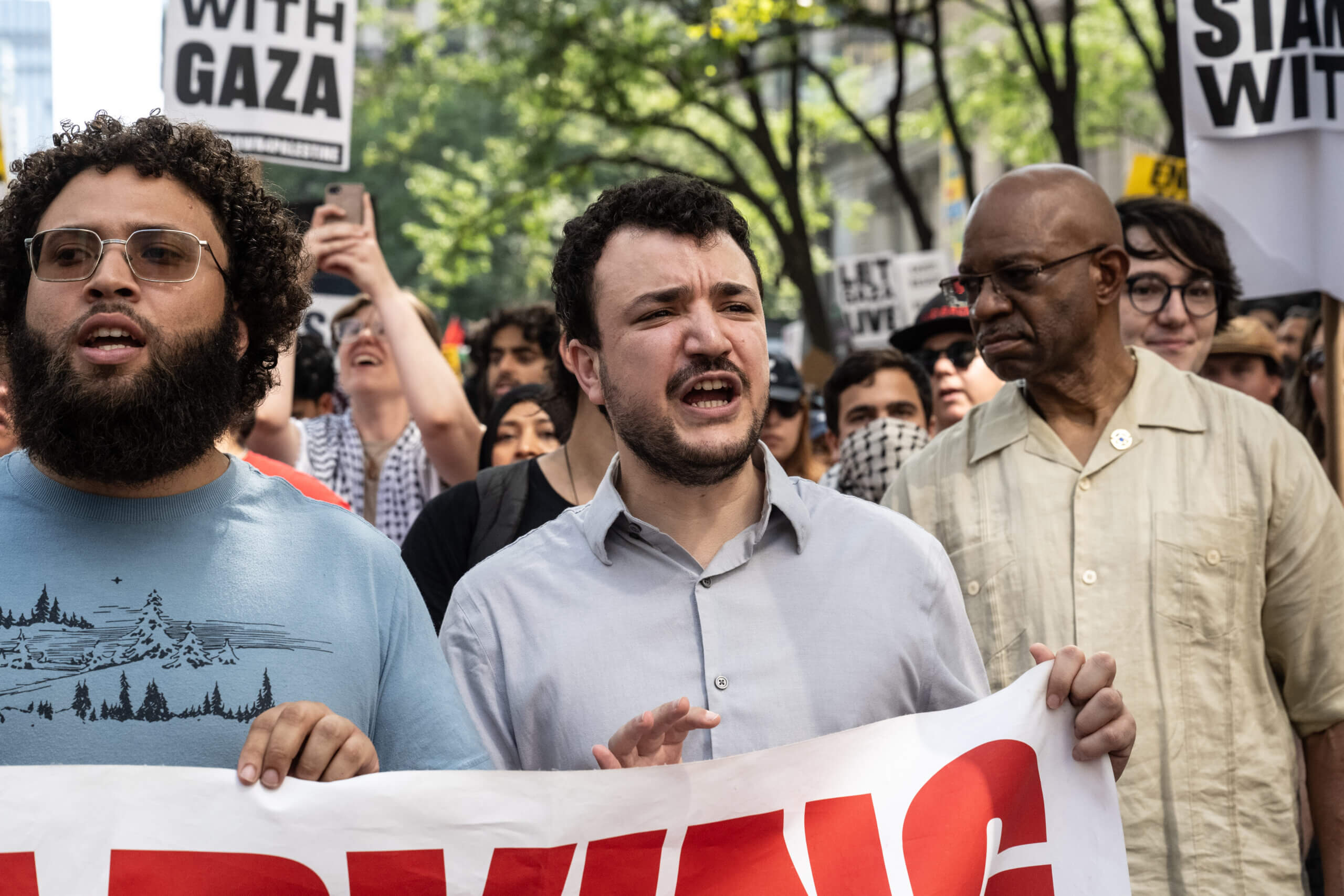
The response to Khalil’s arrest was the final straw for Berman, who first joined the ADL’s regional New England board in 2001 and had held leadership positions on the national commission.
Berman had little sympathy for Khalil’s views, which he called “reprehensible” in his resignation letter, but defending the arrest had “irrevocably degraded the ADL’s moral authority.”
“If we don’t stand for civil rights, we stand for nothing,” he added.
The Khalil controversy did little to change Greenblatt’s hostile posture toward campus protesters. In a closed-door meeting with Republican attorneys general over that summer, he compared masked demonstrators at Columbia to ISIS and al-Qaida terrorists.
In an interview, Greenblatt emphasized that his remarks were not intended for the public.
But his intensifying rhetoric toward protesters drove an even deeper wedge between the ADL and other civil rights groups. In the initial aftermath of Oct. 7, many Jewish clergy and other leaders wondered why their interfaith and social justice partners weren’t condemning Hamas more forcefully, while leaders in other communities questioned a perceived lack of sympathy for Palestinian civilians.
Ginna Green, the founder of Horizon Philanthropy, which encourages Jewish donors to support liberal democracy, said she understood the fear that led to this schism between not only the ADL but many other Jewish establishment groups and civil rights groups in recent years — but said it was shortsighted.
“The American Jewish community has never been less safe,” Green said. “We’ve never needed the protection of democracy and coalitions and partners more than right now — so to make this move at a time when nobody is safe unless they’re a straight, white Christian male seems like an absolute abandonment of the principles the ADL was founded on.”
A former senior staff member at the ADL who worked there before and after Oct. 7 said he shared the frustration toward the progressive and human rights communities but thought there was an opportunity for cooler heads to prevail.
Instead, the organization’s approach — including the call to investigate students for ties to Hamas — caused a tonal shift among former allies from, “We don’t want to work with the ADL because we don’t think they care about us,” he said, to “We can’t work with them because they’re a hate organization.”
Greenblatt tests ‘old friendships’
The ADL’s shifting approach to civil rights began around 2017, but the rupture with other groups also grew from a new understanding of where antisemitism was coming from, which Greenblatt began to articulate a few years before Oct. 7.
Early in the Biden administration, Greenblatt argued that a record-shattering spike in antisemitic incidents was being caused not just by the right, which was responsible for most of the physical violence toward Jews, but by people criticizing Israel. “When you have people make wild claims about the Jewish state, make unhinged accusations, maybe it shouldn’t surprise us that then people attack Jewish Americans,” he said on PBS News Hour in April 2022.
Just a few weeks later Greenblatt delivered a watershed speech at the ADL’s national leadership summit in which he declared that “anti-Zionism is antisemitism” and said the groups promoting it — including Students for Justice in Palestine, Jewish Voice for Peace and the Council on American-Islamic Relations — were the “photo inverse” of violent white supremacists.
“These organizations might not have armed themselves,” Greenblatt said, but “if you demonize another group enough, there are more than a few people out there who will act.”
Greenblatt had spoken out against anti-Zionism for years, but the speech marked a new era in which he would start regularly describing anti-Zionists as posing an equivalent threat to white supremacists.
According to several former employees familiar with the matter, he delivered these remarks over the objection of most of the ADL’s senior leadership team, including Oren Segal, who runs the organization’s Center on Extremism and cautioned that law enforcement might take Greenblatt’s remarks as an excuse to surveil peaceful advocacy groups.
“Oren himself says that he has no recollection of ever having a conversation” in which he raised those concerns, Fabes said.
Greenblatt recognized in his speech that the new direction he was plotting would “fray some old friendships” and “cost us some donations.”
One of those old friendships seemed to fray almost immediately.
Greenblatt’s speech was followed by remarks from Maya Wiley, the incoming CEO of the Leadership Conference on Civil Rights, one of the country’s oldest coalitions of its kind that includes the ADL, NAACP and ACLU, along with scores of smaller groups.
Wiley had not been warned that Greenblatt would unveil a more aggressive posture toward progressive organizations at the event, and it prompted an immediate challenge for her work keeping a sprawling coalition united despite differences over Israel, according to multiple people familiar with the matter.
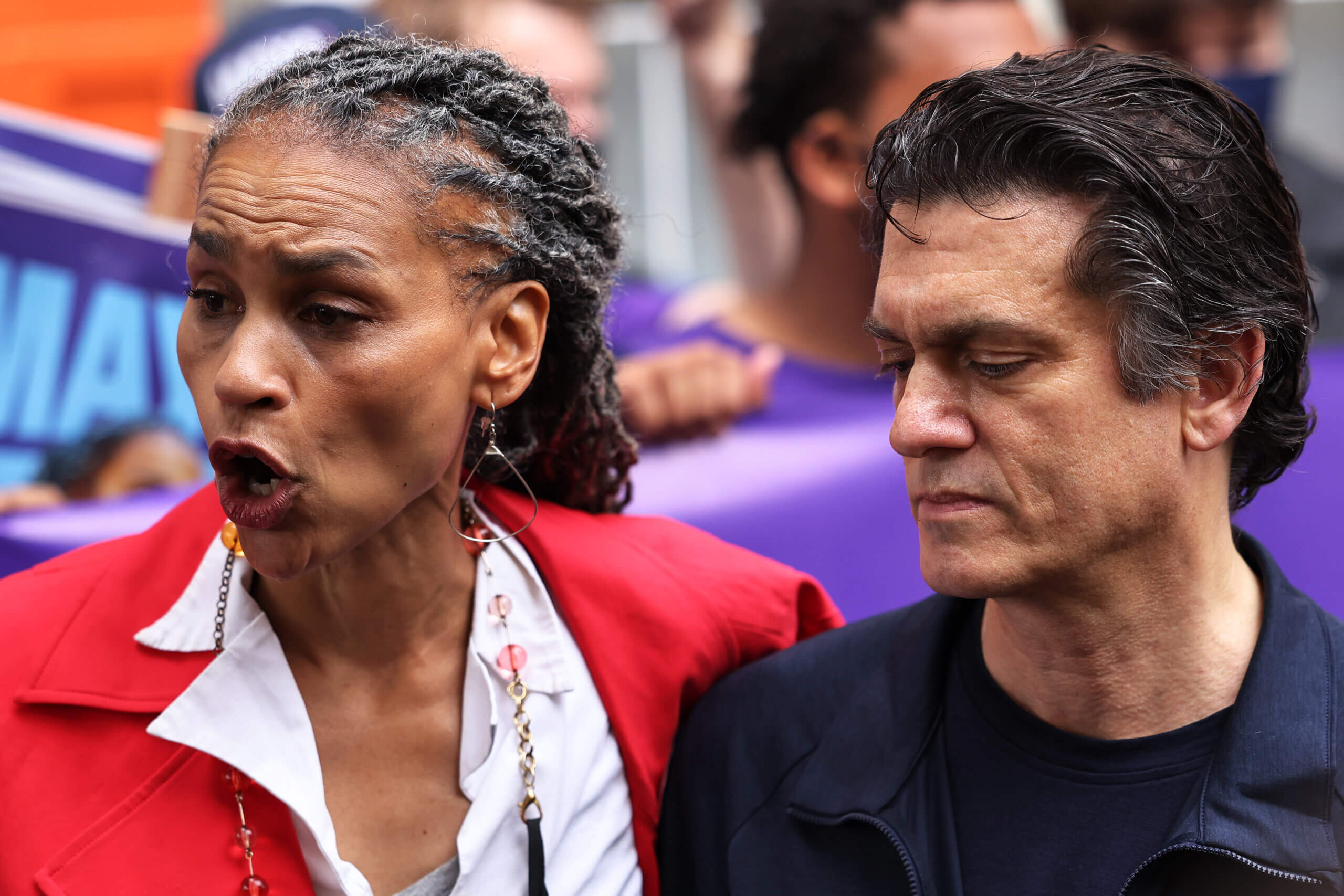
The relationship between Wiley and Greenblatt has continued to deteriorate, sometimes in personal terms, three people familiar with the matter said.
Greenblatt unequivocally denied this. “That’s not true,” he said. “I have a lot of respect for Maya.”
Wiley declined to answer questions about her relationship with Greenblatt.
The ADL was not among the 65 civil rights organizations that signed onto a June statement from the Leadership Conference condemning “antisemitic hate crimes” following the attacks at the Capital Jewish Museum and at a rally in Boulder, Colorado, last spring. Wiley also released a statement last summer defending the National Education Association, a member organization, after Republicans pushed to shut it down over a vote to boycott the ADL.
Several Leadership Conference member organizations also took issue with the ADL before Oct. 7 over a preliminary version of survey results about antisemitism in the African American community that they found oversimplified and offensive. The ADL eventually agreed to delay the survey’s release and modify its presentation. Fabes described the incident as part of the ADL’s belief in “a counsel culture, not a cancel culture.”
Fabes said that Greenblatt has a recurring call with Wiley and that the ADL currently serves on the Leadership Conference’s board and sits on its hate crimes task force. He also said that the ADL continues to work with the NAACP, and that Johnson served as co-chair of its Sports Leadership Council even as he has been absent from recent conferences and called for an arms embargo against Israel.
The NAACP did not respond to questions about the current status of its work with the ADL.
Maya Berry, executive director of the Arab American Institute, is the co-chair of the hate crimes task force that the ADL sits on, and while she once testified alongside Greenblatt during a 2021 congressional hearing about violent extremism, Berry recently said she was pleased the FBI had decided to end its partnership with the ADL.
The ADL has continued to work closely with two Leadership Conference members: the National Urban League, another Leadership Conference member, whose president spoke at its annual conference last year, and the League of United Latin American Citizens.
Wiley said in a statement to the Forward that, despite various divisions, the Leadership Conference has always sought to maintain a diverse coalition committed to “fighting antisemitism and all forms of hate.”
ADL loses longtime supporters
While the ADL has long faced criticism from progressives — including a campaign to #DropTheADL over its support for Israel — many former employees and board members who are speaking out now were unswayed by these previous critiques.
Tracey Lagbold, who served as leadership chair on the national commission and head of the ADL’s education committee, said that “breaking up with ADL was one of the hardest things I’ve done in my entire life.”
She first got involved with the ADL in 2008 after an acquaintance invited her to an event the organization was hosting. “It was the first time I really heard about civil rights from a Jewish perspective,” she said. “I was like, ‘Wow, I didn’t know I was looking for that my whole life, but that’s what I’ve been wanting.’”
Lagbold eventually became chair of the ADL’s Florida board and assumed several national roles. She stomached a series of frustrating decisions made by Greenblatt, she said, including shrinking the organization’s education programming focused on combating bias and eliminating the dedicated civil rights team.
But presenting an award to Jared Kushner in early 2024 for his work on the Abraham Accords was the final straw.
Walter Jospin, a longtime ADL donor, was also angered by the award, and said Greenblatt’s decision to give it caught the organization’s then-board chair Ben Sax by surprise. “He told me that the national board was blindsided — Jonathan just did it,” Jospin said. “They didn’t like it.”
Sax did not respond to a request for comment, and Fabes said the organization does not discuss Greenblatt’s interactions with the board.
“The ADL was founded on this mission of doing two things that I thought were inextricable: caring for others and caring for ourselves,” said Lagbold, whose resignation from the ADL has not been previously reported. “I don’t think of them as two things, because they need each other, they inform each other — and it became clear in the last few years that’s not the way the organization is operating anymore.”
Aaron Ahlquist, who ran the ADL’s regional office in New Orleans and eventually became a regional vice president, resigned in July over similar concerns with the organization, according to a copy of his resignation letter obtained by the Forward.
In a scathing critique of the organization’s leadership, Ahlquist wrote that national board chair Nicole Mutchnik had told regional leaders that “our sole focus was on an immediate ROI on our activity and we would be looking [for] short-term results only.”
“This is a false assertion and the characterization of Nicole is inaccurate,” Fabes said.
Ahlquist argued that this made it hard to advocate for investing in civil rights issues or in building coalitions with other minority groups, work that often takes “years or decades to earn our place at the table.”
He said that a more forceful emphasis on defending Israel while pulling back on education programs that focused on protecting all minority groups was marginalizing the organization and allowing longtime opponents of the ADL, like the Council on American-Islamic Relations, to increase their influence.
“Our move away from our integrated mission has potentially done irreparable harm for ADL in non-Jewish spaces,” Ahlquist wrote.
Greenblatt has framed the ADL’s turn away from working on issues beyond antisemitism as one meant to pair the organization’s limited resources with a growing number of incidents targeting Jews.
“Our core purpose is to protect the Jewish people — not in an esoteric way, not in some attenuated manner, but right here, right now.”
Jonathan GreenblattCEO of the ADL
Fabes noted that the organization tallied the highest number of antisemitic incidents on record in 2019 and then again in 2021 and 2022, and that the synagogue shootings in both Pittsburgh and Poway, California, predated Oct. 7. “The growing crisis underscored our hyperfocus on addressing rising levels of antisemitism,” he said.
But some see this as a false binary.
Lagbold is now a board member at the Jewish Council for Public Affairs, which has argued that preserving democratic norms helps guarantee Jewish safety, and that trading quick wins — like the deportation of college students who protest Israel in ways that some Jews find offensive — in exchange for the erosion of due process is a bad deal. “It’s impossible to separate these issues,” Amy Spitalnick, JCPA’s CEO, said in a text message.
Greenblatt understands this position, and even articulated it in his 2022 book, It Could Happen Here, in which he wrote that “the founders of ADL believed in the simple but powerful premise that America could not be safe for its Jews unless it was safe for all its people.”
Steven Ludwig, a longtime regional board member in Philadelphia, seized on Greenblatt’s previous writing in his resignation letter over the summer.
“Did you mean it when you wrote … ‘There’s still time to stand up for the peaceful, democratic society we want to gift to our children and grandchildren,’” Ludwig asked. “If so, why are you not standing up now?”
In an interview, Greenblatt described the ADL as stepping into a more service-oriented role amid a “tsunami” of antisemitism. “When Jewish people find their homes or their businesses defaced,” he said, “when Jewish professionals are being boycotted from their lines of work, when Jewish members of unions are being harassed — we stand up for them.”
The ADL has responded to these issues with advocacy and also, increasingly, with practical tools, including several helplines that field complaints of discrimination in K-12 schools and on college campuses, which have yielded hundreds of reports and in some cases federal complaints or lawsuits on behalf of callers. Greenblatt said high-minded advocacy on behalf of civil rights or democratic norms was too abstract for the current moment.
“One could make the argument that protecting democracy protects the Jews,” he said. “But our core purpose is to protect the Jewish people — not in an esoteric way, not in some attenuated manner, but right here, right now.”
And, he added, all the work the ADL is doing defending Jews against antisemitism?
“That’s civil rights work.”
The post The ADL’s turn away from civil rights was years in the making — Oct. 7 accelerated it appeared first on The Forward.


